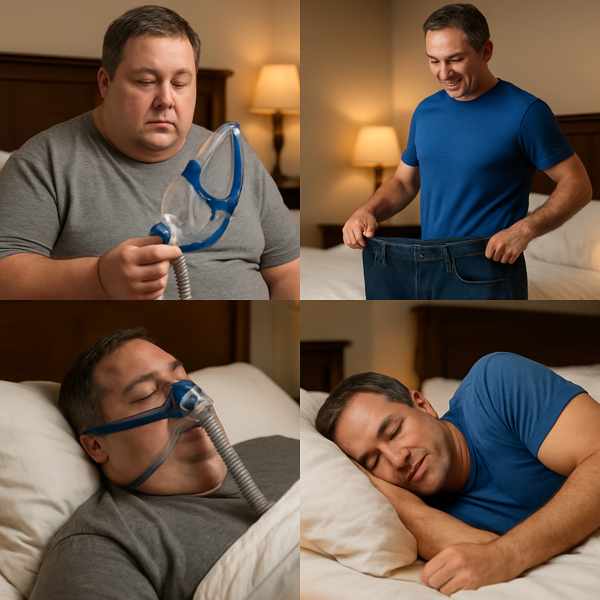
Sleep apnea is a common sleep disorder that affects breathing during rest.
While not always a complete cure, weight loss often improves symptoms of sleep apnea significantly.
Causes and Symptoms of Sleep Apnea
The most common form is obstructive sleep apnea (OSA), caused by relaxed throat muscles.
Common symptoms include:
- Often reported by sleep partners
- Choking or gasping during sleep
- Excessive daytime tiredness
- Morning headaches or dry mouth
The Link Between Weight and Sleep Apnea
Carrying extra weight, especially around the neck and upper body, can put pressure on the airway during sleep.
Key risk factors include:
- High BMI (Body Mass Index)
- Narrows the airway path
- Poor muscle tone in the throat
Is It Possible to Eliminate Symptoms Naturally?
Especially in individuals with mild to moderate OSA, lifestyle changes can be very effective.
Possible benefits of weight loss:
- Less airway obstruction
- Reduced risk of waking up during sleep
- Less need for CPAP machines or surgery
- Feel more rested and alert
However, weight loss may not cure sleep apnea in all cases — especially if anatomical issues or severe OSA are present.
Realistic Expectations
Even modest weight loss can have a big impact.
Tips:
- Focus on progress, not perfection
- Sustainable changes make a difference
- Track your sleep changes
Natural Weight Loss Tips for Better Sleep
Effective strategies:
- Eat a balanced, whole-food diet
- Boosts metabolism and burns fat
- Helps open up the airway naturally
- These relax throat muscles and worsen apnea
Working with losing weight and sleep a nutritionist or sleep specialist can provide more personalized support.
Other Treatments Besides Weight Loss
If symptoms continue, talk to your doctor about other options such as:
- CPAP therapy (Continuous Positive Airway Pressure)
- Oral appliances
- To remove excess tissue or reposition structures
Is Weight Loss the Answer?
So, can weight loss cure sleep apnea? In many cases, it can help manage the condition.
Talk to your healthcare provider, make informed decisions, and take proactive steps toward better health and rest.